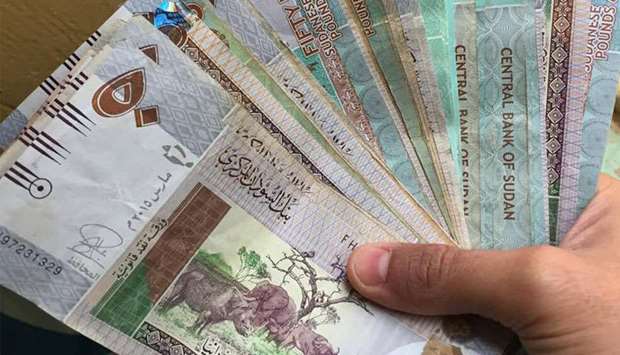Sudan's central bank will start printing 100 pound bank notes for the first time to ease a liquidity crisis exacerbated by rampant inflation, state news agency SUNA said on Sunday.
Sudan's economy has been struggling since the south of the sprawling northeast African country seceded in 2011, taking with it three-quarters of oil output and depriving Khartoum of a crucial source of foreign currency.
In recent months local currency liquidity at commercial banks has dried up, with long queues outside of banks and daily withdrawal limits falling to as low as 500 Sudanese pounds ($17.06) in some places.
The previous largest banknote in Sudan was 50 pounds.
‘Printing the 100-pound banknote is a step in the right direction, because the high inflation rate has dropped the value of the 50-pound banknote,’ Abdullah al-Ramadi, a Sudanese economist, said.
The decision ‘will help solve the liquidity shortage that harmed the Sudanese economy and the central bank has to increase the money supply to overcome the liquidity crisis,’ al-Ramadi added.
Restrictions on how much cash is available to commercial banks are among measures aimed at curbing rampant inflation and addressing an economic crisis that could derail President Omar al-Bashir's plan to extend his nearly three decades in power.
Early in September, 11 months after the United States lifted 20-year-old trade sanctions, Bashir dissolved his government, citing Sudan's ‘state of distress and frustration’, and slashed a third of ministries to cut costs.
At over 60 percent, Sudan's inflation rate is among the world's highest, while its currency buys fewer than half as many dollars on the black market -- which has effectively replaced the formal banking system -- as it did a year ago.
Sudan's central bank has devalued its pegged currency from 6.7 to about 29 pounds per dollar in the last year, but the black market rate is still lower, at about 45 pounds on Sunday.

